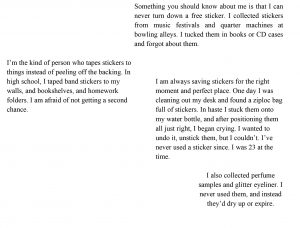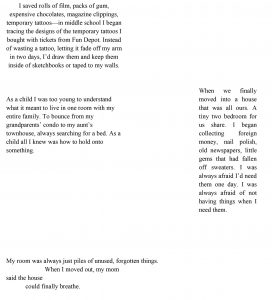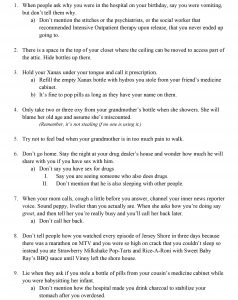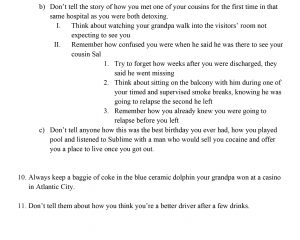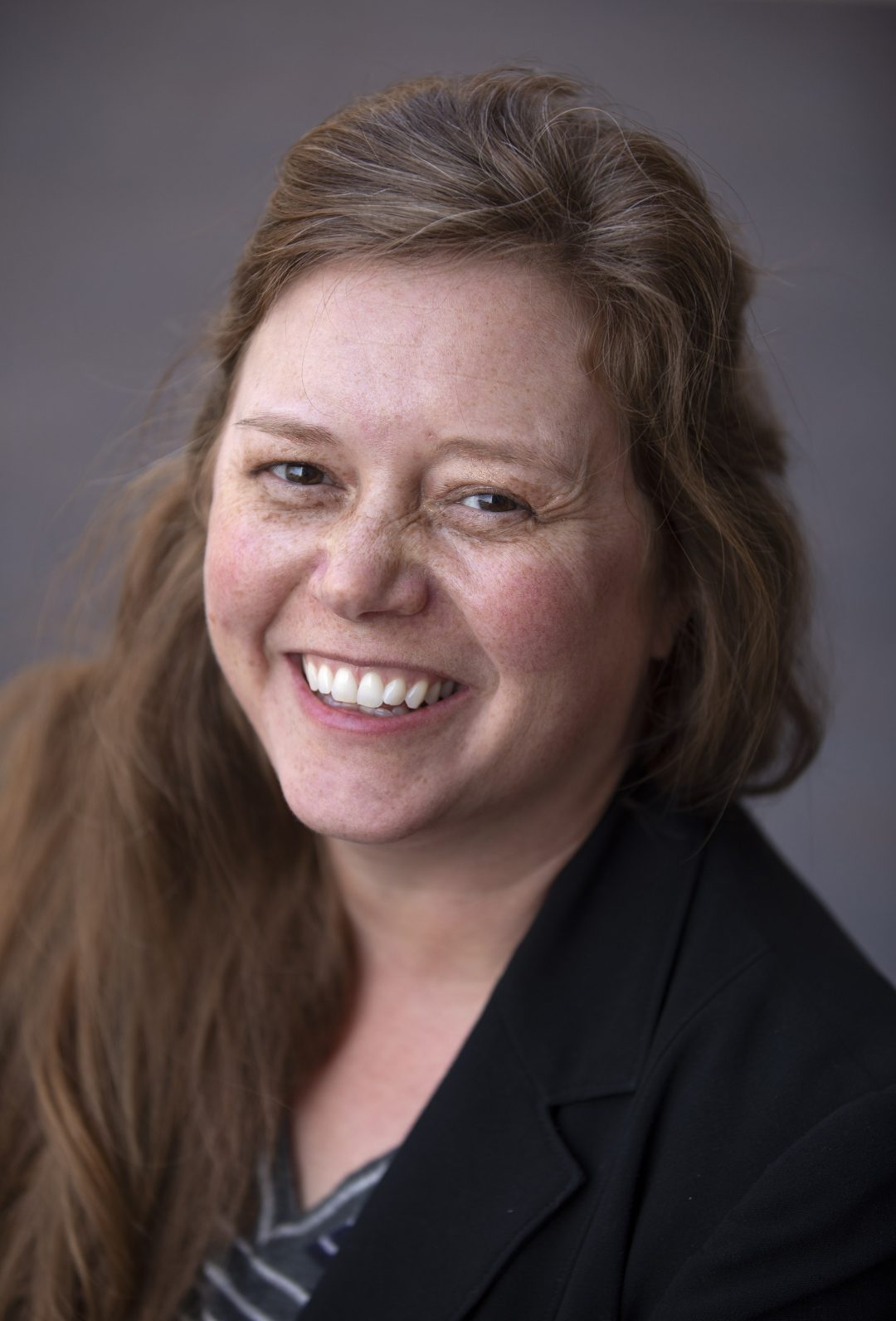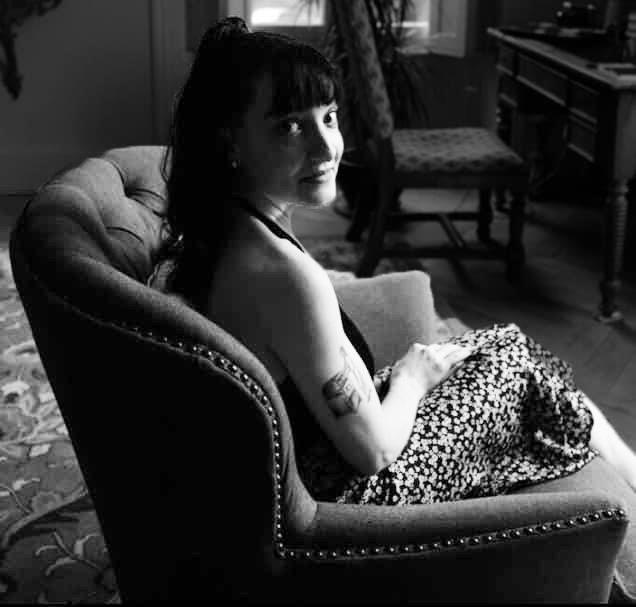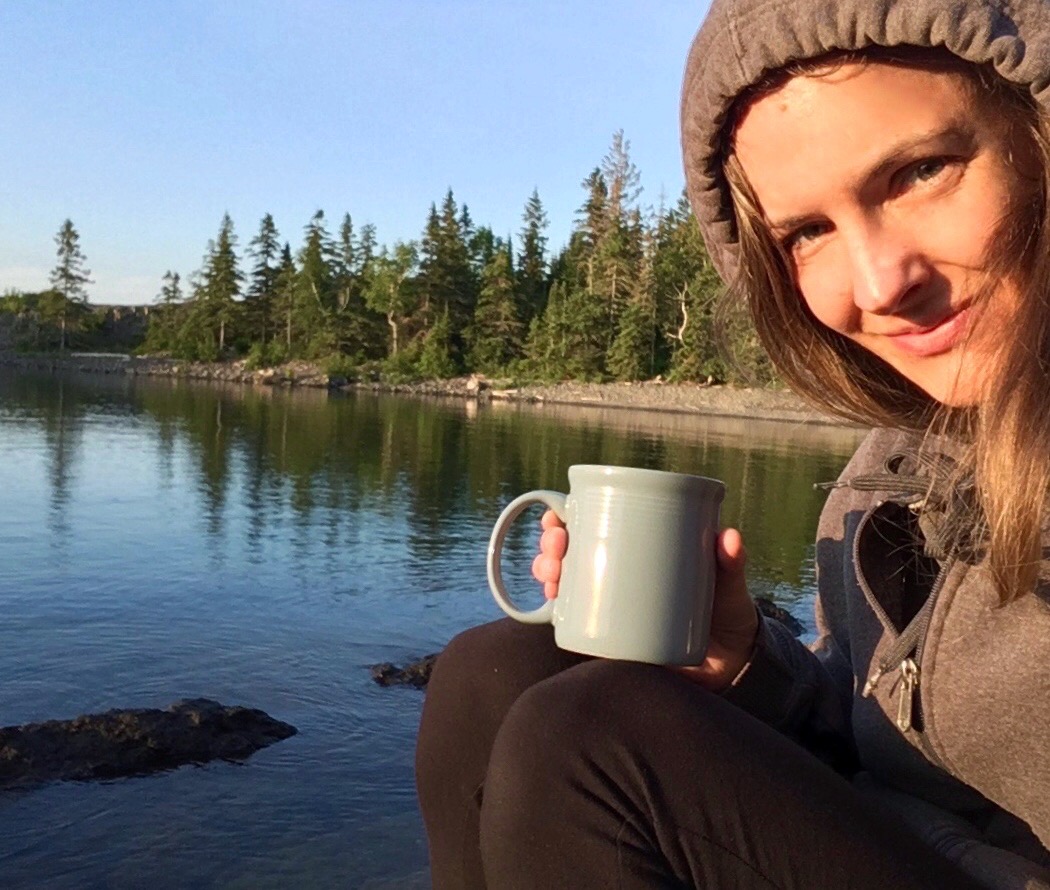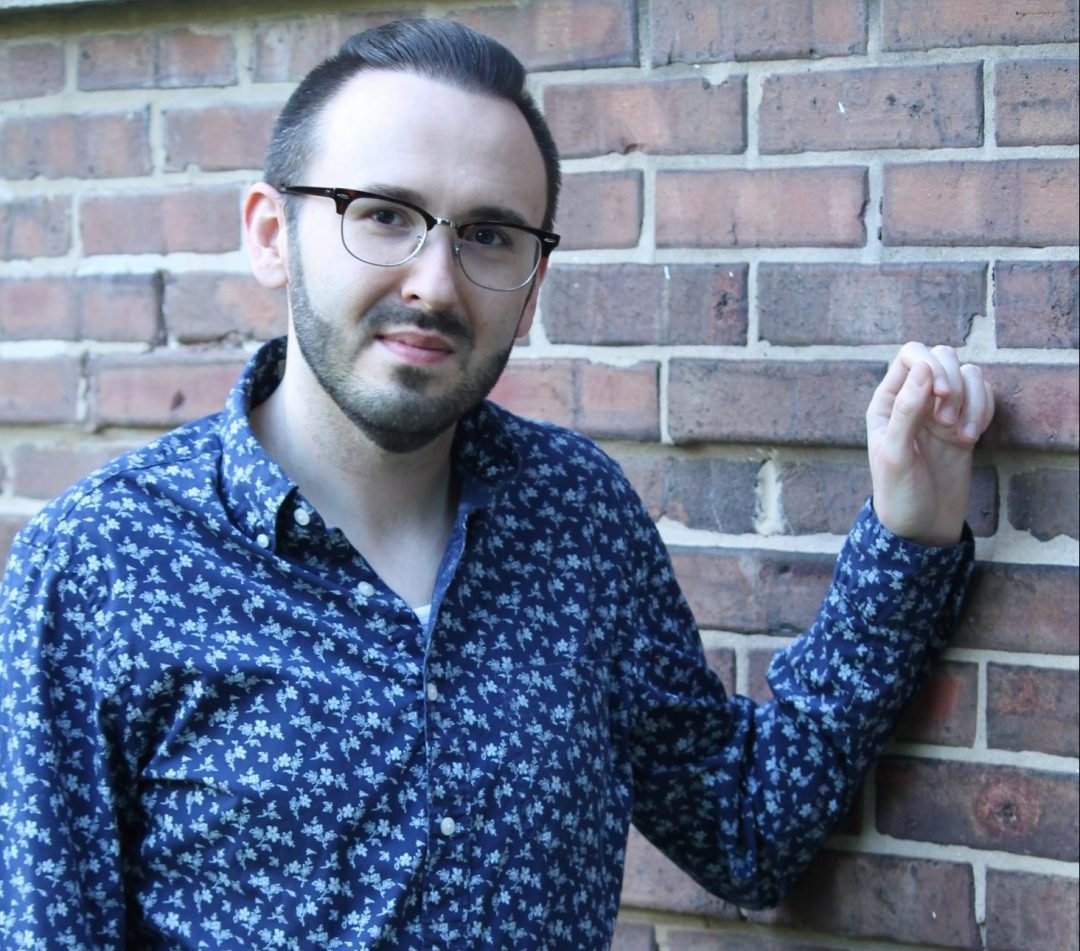With Bruno
In my first memory of life, which I recall as both observer and observed, I am four years old and waiting in the wings. I am waiting for my cue to burst out onto the stage. I can feel the heat of the stage lights and the curious eyes of the audience in the dark seats. I have woken, suddenly, though I did not know I was asleep. I nearly miss my cue. I begin to cry. Strong hands and arms behind me push me out of the darkness of the wings and into the light of the stage.
The kind of art I care about is a regression, childhood revisited. If it were possible to reverse development, to attain the state of childhood again, to have its abundance and limitlessness once more, that ‘age of genius,’ those ‘messianic times’ sworn to us by all mythologies, would come to pass. My ideal goal is to ‘mature’ into childhood.
I like to look at Bruno Schulz’s photograph. He looks like all the rebellious, brilliant boys I was friends with in school who, in one way or another, burned out and faded away. He wears a perpetual mischievous grin, as if he plans to pull the rug out from under you. He is deeply melancholic, extraordinarily dramatic, occasionally lazy, and totally inept at any practical adult skill. In short, I am quite in love with him. But like his fiancée, Jósefina, who waited for him to get his act together and move with her to Warsaw, where they would have married and had children and lived a conventional adult life—I’m certain I would have hated living with him.
Beyond this, I don’t identify with Jósefina. I identify with Bruno. Like him, I possess the impulse to create circumstances for living that serve my inquiries in art, rather than squeezing in time for art around my obligations. Still, I can’t help but laugh sometimes at his total ineptitude; at least I am fully capable of feeding myself, paying my bills, and cleaning my house without the assistance of others. It was these very skills Jósefina possessed that made Bruno hold onto the possibility of their marriage for so long: he knew he was largely unable to take care of himself, and her patience (while it lasted) was so comforting. He would have had a happy life in Warsaw.
I was walking through a cemetery in New England one summer afternoon when a friend texted me and asked if I thought it was possible to be happy and write. I said no. It wasn’t the answer he was looking for. What I did not say was why I believed this, but I believe Bruno would have agreed with me for my reasoning; for people like us, conventional ‘happiness’ is not the goal. Bruno never moved to Warsaw with Jósefina, and she stopped waiting, because he chose to stay in his hometown of Drohobycz—the space of his childhood and the geography of his mythology. Happiness was not what he sought; rather, happiness came to him through the time, space, and ability to write. Happiness was not a constant, static state he pursued but rather a manifestation of fulfillment. His drive in life was to find a language for the reality of his mythology, a language he could only seek and explore in the dim light of the houses and avenues of his village—“in the hazy light of an undefined hour.” I should have explained all this to my friend. He would have understood. Doesn’t matter—I’m explaining it now.
I am four years old and I am dressed as a clown, leading a parade, and all this is not a dream, though acting and performance always toe the line of a dream space. Acting is work, but I am four years old, so I don’t know this yet. What I know is that my real father, The Peddler, is on the stage with me, but I am forbidden from behaving as though he is my dad. I know that my real sister, The Tightrope Walker, is also on the stage with me, but I mustn’t call out to her by any other name. In fact, I must largely ignore her existence within this context. I know that my real mother, The Director, is somewhere out there in the dark audience, and to call out her name would break the fourth wall and the reality of the play, ruining the entire glorious thing.
I have attempted to uncover my private mythology, my own ‘stories,’ my own mythic family tree. Just as the ancients traced their ancestry from mythical unions with gods, so I undertook to establish for myself some mythical generation of forebears, a fictitious family from which I trace my true descent.
Not much is known about Bruno Schulz outside of what we can glean from his mythological autobiography and a few key facts from his curriculum vitae. He worked as a part-time painting and drawing teacher at a high school in Drohobycz. Aside from his failed engagement, the majority of his close friendships and relationships were epistolary. He isolated himself in a small, provincial town so he could write long letters to mentors, publishers, and friends from school. In these letters, he spoke of everyday life matters but seemed to care much more about the ability of letter-writing to draw out the details of one’s internal emotional life. He was a dedicated correspondent and cared deeply for the act of letter-writing and the literary status of letters.
Schulz began his book, The Street of Crocodiles, in the footnotes of his letters to Deborah Vogel, an author, philosopher, and painting enthusiast with whom he carried on the most significant correspondence of his short life. The mythological stories he expounded in those letters were meant originally for her eyes alone—begun as afterthoughts, aspects of his epistolary explorations. The footnotes grew and expanded and took on a literary life of their own, until they morphed into the book that would make him known beyond his untimely death. These stories of mystical horse-drawn carriages, magical birds in the attic, and a father whose unnamed illness turns him into a cockroach appear to be the stuff of fiction, but when read in conjunction with the story of Schulz’s life, they seem quite real to the logic of childhood, the mythology of dreams, and the literature of unexplained phenomena. Since the day I discovered The Street of Crocodiles, I have wondered why Schulz never attained the same level of a household name as Kafka. I find his short story on a man turning into a cockroach to be profoundly superior.
I am four years old, the youngest in a family of actors and theatre-makers who include their children in the theatrical realities they create. It is 1994, and I am performing in the first official stage adaptation of Caps for Sale, the children’s book by Russian author and visual artist Esphyr Slobodkina. My mother has struck up a kind of friendship with her, and together they have created this vision for the stage. We perform at the University of Hartford and Hartford’s historic Wadsworth Athenaeum. But it will be many years before I realize the historic significance of this event. The historic significance is secondary to what develops for me here, on this stage, at four years old—an inability to differentiate between fiction and reality; between myth and dream; truth and fact; my life and the stage.
Schulz said of Rilke in a letter: “The presence of his books is a guarantee that the mute, convolute mass of what remains unformulated in us may yet reach the surface, miraculously sublimated.” It is not until I read Schulz for the first time in college that I gain the power to see my own unformulated masses of mystery—the questions regarding the gray area between reality and myth—and gain a possible framework through which to articulate these mythic dreams. Reading Schulz, I begin to pry open the story I’ve always told myself about my life, my family, and my identity; the story of why I’ve never been able to commit myself fully to fiction or reality. I begin to find a language for all this.
The elements operating here rise out of that misty region of early childhood fantasies, forebodings, anticipations, terrors which is the true spawning ground of mythical thinking. It seemed worthwhile to condense that mythical suspension into a coherent, densely meaningful world of legends, to let it ripen into a kind of personal and private mythology without sacrificing its substratum of authenticity.
I may not be remembering this correctly, but I believe that I first read The Letters and Drawings of Bruno Schulz while on a plane. It would be appropriate if that were the case, as airplanes create an atmosphere of non-place and non-time that gives rise to realizations and awakenings. For most of my life, I was unable to practically tackle obligations that were expected of me. I tried, but I would inevitably slip into a non-place mid-task and disappear for a while into the space of dreams. Like Schulz’s father in The Street of Crocodiles, I could not “merge with any reality and was therefore condemned to float eternally on the periphery of life, in halfreal regions, on the margins of existence.” I believed I was a non-person who did not exist on the surface level of daily life but rather in the murky subconscious of fears, isolated images, archetypes, and imaginings. And I believed in the truth of this space more than any other.
In early childhood development theories on the brain, age four is called The Dreamer—the stage at which the child reaches something called Imagination Explosion. I was four when my real parents put me in the arms of two college student actors and told me they were my mother and father. I was cradled in the arms of a young woman I did not know while my real mother disappeared into the audience and my real father piled a stack of caps on his head—“first his own checked cap, then a bunch of gray caps, then a bunch of brown caps, then a bunch of blue caps, and on the very top, a bunch of red caps”—and walked onto the stage as The Peddler before a backdrop of rolling green hills and apple trees and wildflowers.
Behind [this book] I see the contours of another I’d like to write myself. Thus I actually can’t tell if I am reading the first book or that possible but unrealized one. That’s the best way to read—reading oneself, one’s own book, between the lines. This is how we used to read in childhood, and that is why the same books, once so rich, are like trees stripped bare of leaves when read in adulthood—stripped, that is, of the commentary we used to putty over the gaps. The books we read in childhood don’t exist anymore; they sailed off with the wind, leaving bare skeletons behind. Whoever still has in him the memory and marrow of childhood should rewrite these books as he experienced them.
If I read the book version of Caps for Sale when I was four, or if someone read it to me, I have no memory of that. I only recall experiencing it—bringing the book to the stage and the story to life. Esphyr and my mother chose to add a scene from another one of her books to this play—a circus parade, led by me, The Clown—as an explanation for why the townspeople were nowhere to be found when The Peddler arrived hawking his wares. Esphyr’s illustrations from the book were projected and used to create enormous backdrop landscapes. Before my eyes, my father became a fiction and the book became the real world in which I lived.
In a way these ‘stories’ are real, represent my way of living, my personal fate. The overriding motif of this fate is a profound loneliness, isolation from the stuff of daily life […] Loneliness is the catalyst that makes reality ferment, precipitates its surface layer of figures and colors.
Loneliness is often seen as a terrible thing; an undesirable, pitiable thing. But there are some of us who manage to live both on the surface—enough to get by—as well as in the solitary space of dream; a necessary headspace for artistic development.
Schulz knew he had to reject the surface-life—a happy life in Warsaw—if he wanted to manifest his personal fate. Reading Schulz, I am able to access those figures and colors that constituted the contours of the work that was laid out for me, lying in wait for me to encounter.
There are texts that are marked out, made ready for us somehow, lying in wait for us at the very entrance to life. This is how I absorbed Goethe’s ballad, with all its metaphysics, at age eight. Through the half-understood German I caught, or divined, the meaning, and cried, shaken to the bottom of my soul, when my mother read it to me.
I cried when I encountered the stage at age four, the mythical village where my mythical family lived and traveled. I absorbed the meaning I divined from this experience—that we are both the observer and the actor in our own lives, both embedded and apart from the scenes in which we find ourselves, the worlds in which we live. After a lifetime of playing characters on stage, studying the concepts and consequences of the theatre, I came to see that writing, for me, was not the stuff of pure invention but rather a willingness to confront those initial images, the sources that present themselves to us at the gates of life, in order to delve into the particular secret language that is ours to articulate to others beyond the bounds of our particular stage.
These early images mark out to artists the boundaries of their creative powers. The works they create represent drafts on existing balances. They do not discover anything new after that, they only learn how to understand better and better the secret entrusted to them at the outset; their creative effort goes into an unending exegesis, a commentary on that one couplet of poetry assigned to them.
Art does not resolve that secret completely. The secret stays in a tangle. The knot the soul got itself tied up in is not a false one that comes undone when you pull the ends. On the contrary, it draws tighter. We handle it, trace the path of the separate threads, look for the end of the string, and out of these manipulations comes art.
Encountering Schulz for the first time was, for me, not alighting on the answer to my lifelong struggle, not tugging on the ends and setting them free, but awakening to the image of the knot itself—as if I had moved from inside the tangled mess where I could not see it to just outside it, a little above or to the side, still connected by a taut thread but able to observe the ins and outs of my particular problem; my personal fate. And I do not want an easy answer, a simple way out of the maze, a chapter to passively consume before closing the book and walking away and never thinking about it again. Instead, I want to commit to the greater task laid out before me—the task of the essayist, of the translator: to plumb the depths of narrative, inquiry, and imagery.
The ultimate given data of human life, [Schulz] submits, lie in a spiritual dimension, not the category of facts but in their transcendent meaning; likewise, a curriculum vitae that aims to elucidate its own semantic structure, that is honed to be sensitive to its own spiritual significance, amounts to—myth.
Here is a myth: Bruno Schulz, age 50, was shot dead in the street in Drohobycz in 1942 by S.S. Officer Günther. It was an act of retaliation against Officer Landau, Schulz’s protector, for killing Officer Günther’s Jewish dentist.
Here is another myth: Bruno Schulz, age 50, was shot dead in the street in 1942 by an unknown S.S. Officer. The shots were randomly fired on Black Thursday—the day all Jews were forced to move into the Drohobycz Ghetto.
Both of these myths might be true. They’re both out there. Both are believed.
So much of Schulz is lost to us—his final manuscript, so many of his letters disappeared. But what little evidence we do have of Schulz’s life tells us that to fill in the gaps with a coherent chronology would go against everything he believed and everything he stood for. If he had wanted his life subsumed by the curriculum vitae, captured in a single image, he wouldn’t have lived his life the way he did. Schulz’s life was “made up for the most part of inner events, spiritual and aesthetic quests, and writing (which in the general Slavic tradition is called, simply and boldly, Twórczość, ‘creation’), which to him is the only worthwhile concern, the exclusive purpose of best effort, and the whole meaning of existence.”
I’m not done exploring Schulz’ tangled threads, and he will never be done with me. In some ways, I will continue for the length of my lifetime following Bruno’s knotted strings the way he also followed them in others. In a review of Maria Kuncewicz’s novel, The Foreigner, Schulz described the nuances between genres which publishers and critics had no name for:
As for literary gender this novel is a portrait:
We have to postulate a special genre for [it] even if it should be the sole specimen in the category. It is a portrait assembled by the incommensurable means of narration and novelistic plot. Unlike a biography, which presents its subject in a process of sequential dynamic development, the portrait has the contours of its physiognomy fixed from the start; development tunnels into depth and becomes dramatic analysis. The actual biographical passage of time is arrested, and the various episodes of a life are arranged not chronologically and pragmatically, but according to their deeper characterological meaning for the line of fate etched in the human palm.
Bruno, there’s so much more I want to say to you, things I can’t say to others or outside the letter form. I understand why you never left home, why you taught at your own high school for the stability it afforded you to write. I understand why you never got married; why you thought artists shouldn’t get married. I wish I didn’t agree with you, but I struggle with this: I can’t decide. I prefer to be alone than with someone who does not understand my headspace.
I write this letter to you in the midst of my tangles. I am trying to draw a portrait of myself that extends beyond the borders of biography, that “tunnels into depth” and “becomes dramatic analysis.” I have to believe that it is possible to do; that it doesn’t matter what literary gender the critics assign my work as long as I ensure it is authentic and true.
I’m very far from where I began this essay, Bruno. It feels as though I’m off on a new beginning. I speak to you from the echoing chamber of my solitary life, my knot tied to yours as it tumbles down the avenues in our dark nights of the soul. Are you listening, Bruno?
I’m trying to find your lost, elusive text—The Book, that exquisitely Jewish idea of a space where all things are contained, the whole of the unseen; a text that is beyond all other texts and one that comes before them, hovering behind their frames. The Book is so immense that it can only be glimpsed in fragments. I know you knew this too; hidden in scrapbooks or newspaper clippings; hidden in the back pages of some Almanac. The more you try to control it, the more you feel it slipping out of your grasp toward some mountain far away—some ancient hilltop inscribed with obscure messages, the teachings of our Jewish ancestors who can’t let me into the cemetery because of my tattoos.
I write you this helpless letter as a means of making contact with whatever aspect of the divine has been laid out for us. When I glimpse it, I will continue writing you.
________________________
Naomi Washer is the author of Phantoms (dancing girl press) and American Girl Doll (Ursus Americanus Press) and the translator of Sebastián Jiménez Galindo’s Experimental Gardening Manual (toad press). Other work has appeared in Seneca Review, Passages North, Essay Daily, and other journals. In 2019, she was named one of 30 Writers to Watch by The Guild Literary Complex. She is the editor-in-chief of Ghost Proposal.


